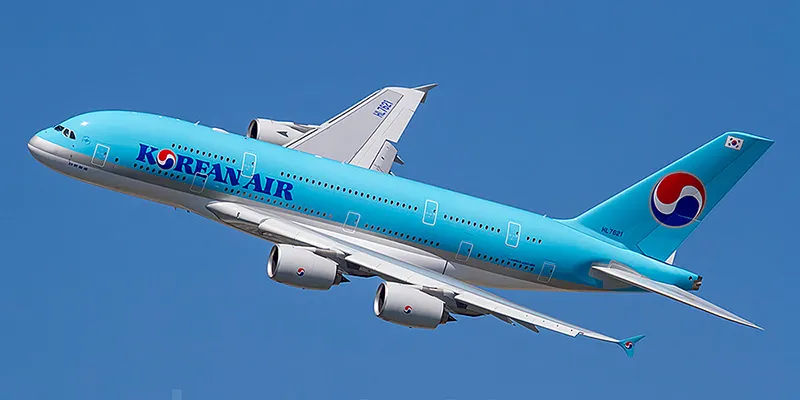
Delta expands global investment strategy with stake in Korean Air
Jun 21, 2019

Delta Air Lines has strengthened its global investment strategy by acquiring a stake in Korean Air, marking a significant move in the competitive airline industry. This investment aims to enhance Delta’s presence in the Asia-Pacific market and foster deeper collaboration between the two carriers. By partnering with Korean Air, Delta seeks to improve operational synergies, expand route networks, and offer customers enhanced travel options. This strategic partnership not only underscores Delta’s commitment to growth but also reflects its focus on building robust alliances that can navigate the complexities of the evolving aviation landscape.
In a significant move to enhance its global investment strategy, Delta Air Lines has acquired a stake in Korean Air, marking a pivotal moment in international aviation partnerships. This investment not only strengthens Delta’s presence in the Asian market but also enhances its operational capabilities, aligning with its long-term goals for growth and expansion. Below, we delve into the key elements of this strategic investment and its implications for Delta, Korean Air, and the broader airline industry.
Understanding the Investment Landscape
Delta's investment in Korean Air comes at a time when the airline industry is navigating a complex landscape characterized by fluctuating demand, rising operational costs, and increased competition. By acquiring a stake in Korean Air, Delta aims to leverage the strengths of both airlines to improve operational efficiency and customer experience.
According to industry analysts, such strategic partnerships are essential for airlines looking to thrive in a post-pandemic world. The collaboration between Delta and Korean Air can be seen as a response to these challenges, as it allows both carriers to share resources, streamline operations, and enhance route networks.
Investment Details
The details of Delta's stake in Korean Air reveal a significant commitment to fostering a long-term partnership. Delta has invested approximately $1.5 billion for a 20% stake in Korean Air, a move that provides both financial benefits and strategic advantages.
| Investment Aspect | Details |
|---|---|
| Investment Amount | $1.5 billion |
| Stake Percentage | 20% |
| Strategic Goals | Expand market reach, enhance operational efficiency |
| Projected Benefits | Increased passenger traffic, improved service offerings |
Benefits for Delta and Korean Air
Both airlines stand to gain significantly from this partnership. For Delta, the acquisition means enhanced access to the lucrative Asian market, which has been a focus of its growth strategy. The partnership will allow Delta to offer improved connectivity to its customers traveling to and from Asia, enhancing its competitive positioning.
Korean Air, on the other hand, benefits from Delta’s extensive global network and operational expertise. This partnership enables Korean Air to expand its market presence, particularly in North America, where Delta has a strong foothold. The collaboration is expected to lead to shared marketing initiatives and joint operations that could significantly boost passenger numbers for both airlines.
Impact on Customers
Customers of both Delta and Korean Air are set to benefit from this investment as well. The partnership is likely to result in improved flight schedules, more seamless connections, and an expanded range of destinations. Moreover, frequent flyer programs could become more integrated, providing passengers with greater rewards and loyalty benefits.
The anticipated increase in codeshare flights between the two airlines means that customers will have more options when booking international travel. This expanded reach can lead to more competitive pricing and improved service quality, ultimately enhancing the travel experience for customers.
Future Growth Prospects
As Delta continues to expand its global investment strategy, the implications of its stake in Korean Air could set a precedent for future partnerships in the airline industry. The collaboration may inspire other airlines to pursue similar strategic investments, further reshaping the global aviation landscape.
In light of the ongoing recovery from the pandemic, airlines are increasingly looking for ways to adapt and innovate. Delta’s investment in Korean Air is a clear indication of its commitment to staying at the forefront of industry trends and consumer demands.
Conclusion
Delta's strategic investment in Korean Air represents a significant milestone in its global expansion strategy. By forging a strong partnership with one of Asia's leading airlines, Delta not only reinforces its presence in the competitive Asian market but also enhances its overall operational efficiency. As the airline industry continues to evolve, such collaborations will be crucial in addressing the challenges and opportunities that lie ahead.
With a focus on improved customer experience and expanded route networks, Delta and Korean Air are poised to redefine international travel in the coming years. This investment is more than just a financial stake; it is a strategic alliance that promises to deliver long-term benefits for both airlines and their customers.
Related Articles

Explore Thailand: The Best Islands to Visit for Paradise, Adventure, and Relaxation

The Ultimate Guide to the Best Islands in Thailand for Your Next Getaway

Do babies need passports? How to get a passport for a newborn

How to get a U.S. passport fast: here’s how to expedite the process

What is Mobile Passport Control: 5 reasons why you should use it

SENTRI vs. Global Entry: A detailed guide

Do you need a passport to go to the Bahamas? Let’s find out

Do you need a passport to go to Mexico? A detailed guide

Do you need a passport to go to Canada? We got the answer

Do You Need a Passport for a Cruise: An Essential Travel Guide

Booster Seat Requirements: All the Rules to Follow in Your Rental Car

What Are the World’s Most Powerful Passports, and How Does Yours Rank?

How to Take a Passport Photo at Home: A Helpful Guide

You've got to have heart! Southwest's new livery

Your opinion: Should water be free on low cost carriers?

Young women bolder than guys as solo travellers
